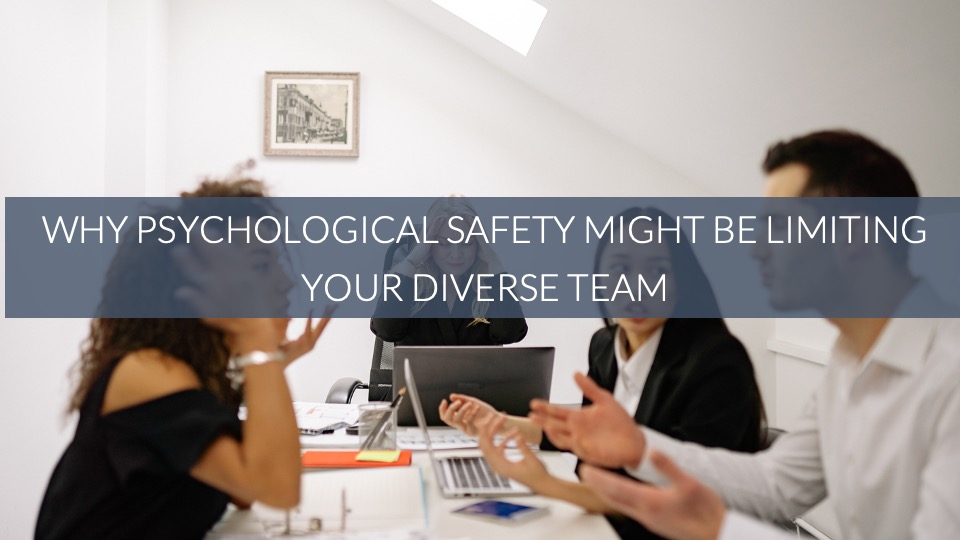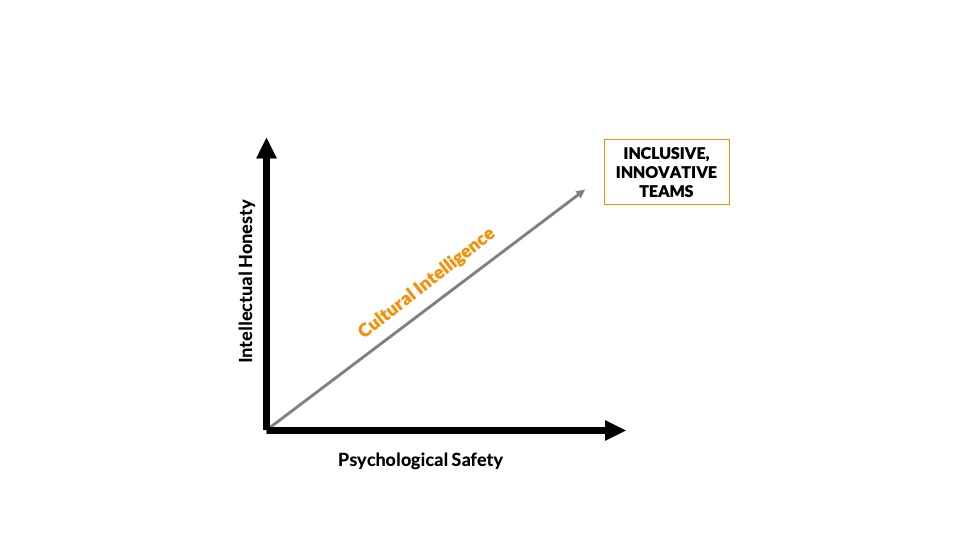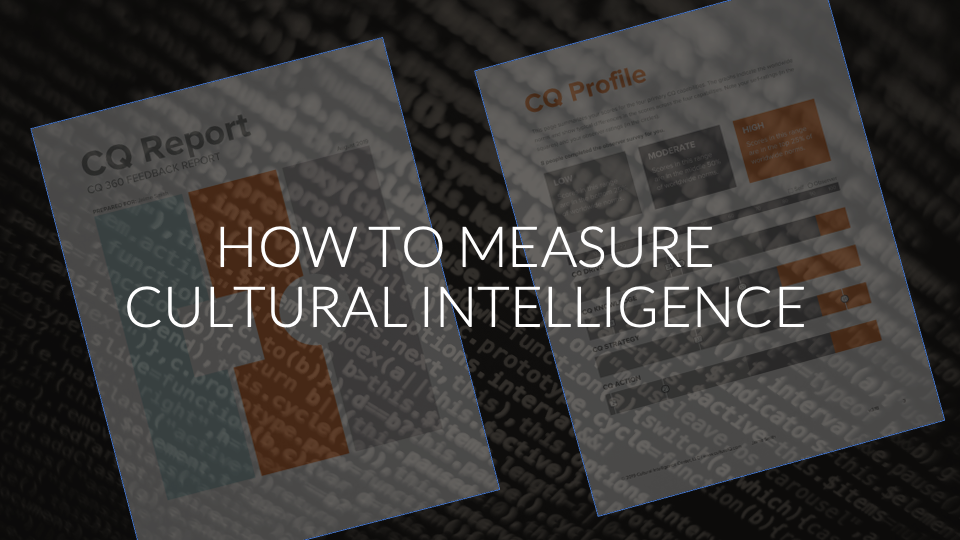
There’s abundant research that repeatedly shows that diversity on a team doesn’t automatically lead to better results. Different approaches to problem solving, conflict, and communication combined with mansplaining, exlusion, and bias impede engagement and effectiveness. Team leaders play a critical voice in whether diversity is an asset or liability to team performance. It’s their role to ensure every voice is heard while creating an environment where people feel safe to challenge one another, ask difficult questions, and have robust discussions that go beyond group think. Based on some new research about effective, diverse teams, I want to explore two critical ingredients for building inclusive, innovative teams—psychological safety and intellectual honesty.

Psychological Safety
There’s been a surge of interest over the last few years surrounding the importance of psychological safety, and rightfully so. People need to feel accepted and comfortable sharing concerns and mistakes without fear of embarrassment or retribution. Many books outline the benefits of psychological safety, beginning with Amy Edmondson’s book, The Fearless Organization. Edmondson says there is a set of unspoken rules that govern many teams like, “Don’t criticize something the boss may have helped create” and “Don’t speak up unless you have solid data to back up your point.” Even if those aren’t in fact the rules governing the team you lead, individuals may presume these are the unspoken rules based on their previous experiences, including what they’ve learned in the figured worlds where they grew up. If you grew up in a culture where you’ve been taught that people in authority should be respected, even if they’re incompetent, it’s going to take a lot more to feel safe challenging a more senior team member’s idea than simply hearing your team leader say, “Let’s speak openly and directly with one another. Ok?”
But when we figure out how to create psychologically safe cultures, there’s a direct link to improved performance. Edmondson found that team cultures where individuals felt safe to speak openly and freely made fewer mistakes because talking about their mistakes allowed them to learn from them. Blaming and shaming doesn’t stop people from making mistakes. It stops them from admitting them. Without admitting mistakes, none of us get to learn from them. The best way to prevent errors is to make it safe to discuss them.
Google has rigorously applied psychological safety to their team cultures and they measure it using a tool they call gTeam. The tool uses pulse surveys to assess a team’s psychological safety along with a few other team dynamics such as dependability, clarity, and impact. Individuals on teams with higher psychological safety are less likely to leave Google, they’re more likely to harness the power of diverse ideas from their teammates, they bring in more revenue, and executives are two times more likely to rate them as effective.
One of the most effective ways Google leaders create psychologically safe teams is by establishing a norm where every team meeting begins with each individual reporting on a risk they took in the last week. Taking risks is expected. Inevitably, many of the risks result in failure, which normalizes both taking the risks and talking about the failures that ensue. Google’s leadership says, “From sales teams in Dublin to engineering teams in Mountain View, we’ve seen that focusing on [psychological safety] helps all types of teams improve.”
Intellectual Honesty
Despite the proven benefits of psychological safety, management scholar Jeff Dyer and his fellow researchers argue that psychological safety isn’t enough. They found that an over-emphasis on psychological safety can come at the expense of intellectual honesty. High performing teams are places where team members push each other to learn through disagreement. Dyer and his collaborators write, “We found that many teams prioritize psychological safety without realizing that the social cohesion it promotes, though beneficial to learning, can sometimes undermine intellectual honesty rather than encourage it.”
One Italian friend said to me, “Americans think, ‘We’re friends, therefore we shouldn’t argue.’ We think, ‘We’re friends. So now we can argue.’” This is precisely what we’re after by combining psychological safety and intellectual honesty. Cultural intelligence gives team leaders the skills to develop a team culture where people feel safe to be brutally honest with each other. This doesn’t happen naturally on any team. There are all kinds of social dynamics at work including insecurity, competitiveness, evaluation apprehension, and in-groups versus out-groups. The more diversity, the more these interpersonal dynamics are amplified. For far too many teams, disagreement doesn’t occur during a team meeting. It happens through side conversations and text messages exchanged before and after the meeting, promoting increased frustration and division and limited benefit from the diverse perspectives and experiences.
Beware. Some team members from the dominant culture may unconsciously use intellectual honesty as an excuse for talking over people, mansplaining, or being dismissive. “Sorry, I’m just really direct.” Others who come from a saving face culture may find it inordinately difficult to engage in outright disagreement, particularly with anyone they perceive to be more senior. But when we apply CQ to facilitate safe, honest, constructive discussions, diverse teams gain far more benefits from intellectual honesty than homogenous teams do.
The goal is to minimize interpersonal conflict with psychological safety and maximize informational diversity with intellectual honesty. Developing cultural intelligence as a team is the only way this can realistically happen. Here are a few practical examples of what it might look like for you in leading a team:
INSTEAD OF: “Are we missing anything?”
TRY: “What are we missing?”
Simply reframing the question helps create a safer, more intellectually honest environment. The first question may cause a team member to think, No one else has brought this up so I don’t want to be the one to say it. The second question assumes you have insights we’ve overlooked and need to hear.
When I was first teaching, I would stop throughout my lectures to ask students, “Do you have any questions for me?” The same few people would speak up but the majority didn’t. But when I would grade their assignments, I quickly saw that many were either unclear about what I had taught or they didn’t understand it. Eventually, I shifted from asking if there were any questions to asking what questions they have, implying that they should have questions. Try this:
INSTEAD OF, “Does anyone have any questions?”
TRY, “This is confusing. I’m sure there are plenty of questions. Now is a great time to ask them.”
Or what about when you’re interacting with your team about some of the challenges they’re facing. Simply telling a diverse team that you welcome hearing them openly discuss their challenges isn’t going to make it happen, particularly for those who have been socialized to avoid talking directly about their challenges in front of others or with their boss. But when we create an expectation that challenges are inevitable, it plays an important part in creating a culture of trust and innovation.
INSTEAD OF, “Are you facing any challenges?”
TRY, “We just finished a tough quarter. Everyone is facing significant challenges. I want to hear about yours.”
Psychological safety is critical. It’s the cornerstone of giving teams the security to courageously challenge one another with intellectual honesty. When we add intellectual honesty to the mix, diversity moves beyond being a politically correct bonus to becoming a genuine source of improved performance and innovation. Together, these ingredients provide the environment for culturally intelligent teams to thrive. And the result is inclusive, innovative teams that are both healthy and productive.
Some content from this chapter is adapted from a new chapter in the forthcoming 3rd edition of Leading with Cultural Intelligence.
The Cultural Intelligence Center now offers a CQ for Teams workshop, an excellent resource to support you team in leveraging your diverse values to increase your effectiveness.



